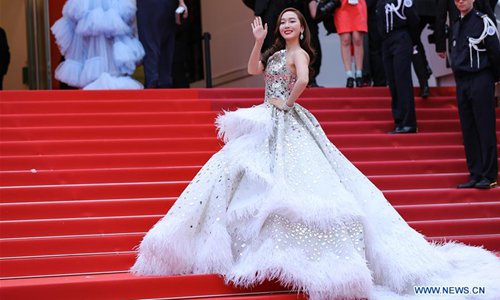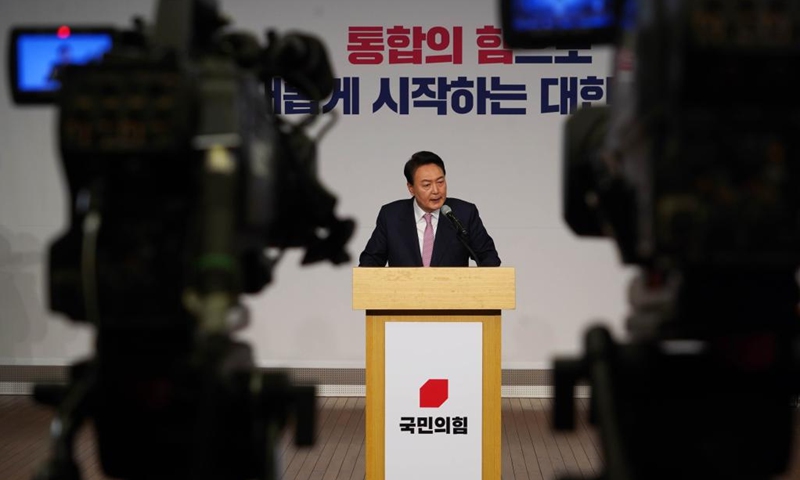ARTS / TV
South Korean star attends Chinese variety show as cultural exchanges warm up

Actress and singer Jessica Jung attends the opening gala during the 72nd Cannes Film Festival at Palais des Festivals in Cannes, France, on May 14, 2019. The 72nd Cannes Film Festival is held here from May 14 to 25. (Photo: Xinhua)
A video clip has gone viral on Chinese social media since Tuesday, showing South Korean singer and actress Jessica Jung singing in Chinese, and the post said that the video was shot while Jung was attending a Chinese variety show.
The appearance of a K-pop star in a Chinese program provides more evidence that cultural exchanges between the two countries are warming up.
An employee of the show's production and broadcast platform Mango TV who asked for anonymity confirmed Jung's attendance with the Global Times on Wednesday, adding that the program might air in April.
Jung uploaded two photos on Sina Weibo on Tuesday and wrote "I miss you much" in pinyin. The background of the photos was found by some Chinese netizens to be similar to a hotel in Changsha, Central China's Hunan Province where the program is being filmed.
The related hashtag has been viewed more than 80 million times on Sina Weibo. Jung's Chinese fans are excited about the discovery and welcomed the South Korean star to perform on the show, thinking that the star's professional singing and dancing will draw more fans.
Jung is not the first K-pop star who has been invited to attend a Chinese program. Another K-pop star, Nichkhun of South Korean boy band 2PM, appeared on variety show Shine! Super Brothers in 2021, which was produced by video platform Youku and China Dragon TV.
Besides an exchange of entertainers between the two countries, some South Korean TV series such as Prison Playbook have been allowed to be shown in China, while some Chinese dramas including Reset have been purchased by South Korean TV stations.
All these have been seen as signs of increasing communications between the two countries and broader cooperation, not only on culture but also in other fields.

